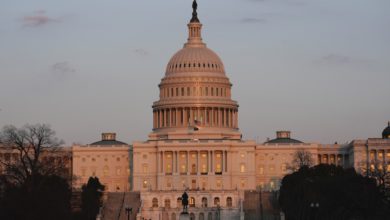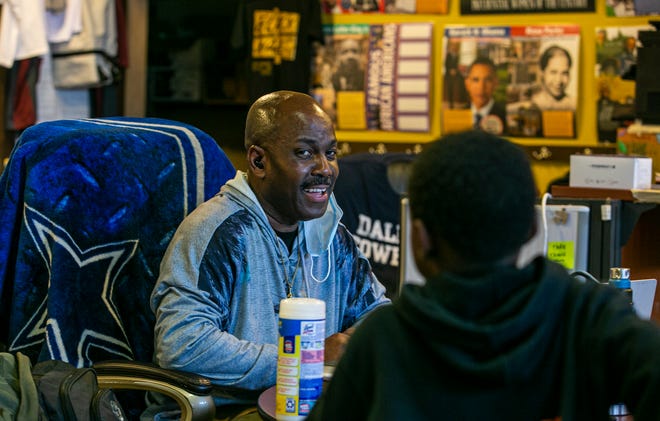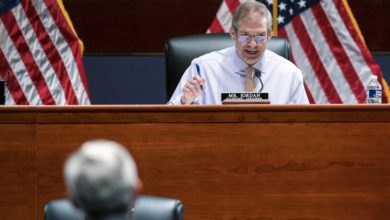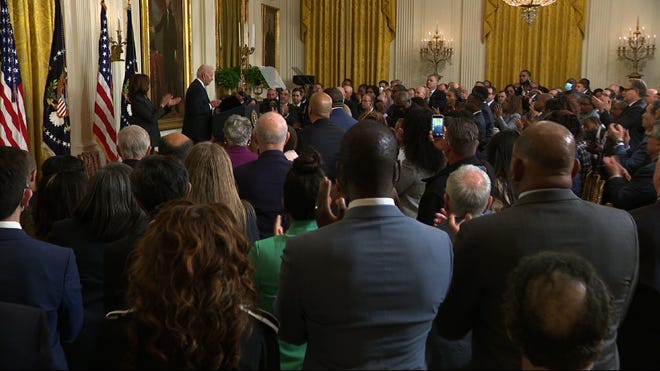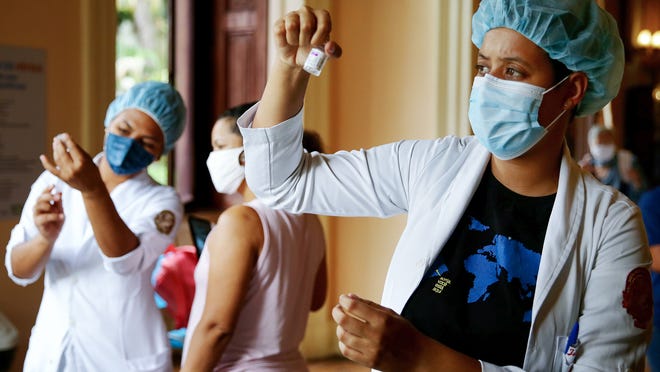
The Food and Drug Administration on Wednesday authorized booster doses of the Pfizer-BioNTech vaccine for people 65 and older and those whose jobs put them at high risk for exposure to COVID-19.
Individuals 18 and up who are at high risk for severe COVID-19 were also included in the authorization, which only covers those who are at least six months out from their second dose of the COVID-19 vaccine.
High-risk jobs include "health care workers, teachers and day care staff, grocery workers and those in homeless shelters or prisons, among others,” said acting FDA Commissioner Dr. Janet Woodcock.
The decision comes almost six weeks after the FDA authorized extra doses of the Pfizer or Moderna COVID-19 vaccine for people who are severely immunocompromised.
"We believe boosters have an important role to play in addressing the continued threat of this disease, alongside efforts to increase global access and uptake among the unvaccinated," said Albert Bourla, Pfizer chairman and chief executive officer.
-Elizabeth Weise and Karen Weintraub, USA TODAY
Also in the news:
► Mormon temples will require face masks indoors to limit COVID spread, the Church of Jesus Christ of Latter-day Saints announced Wednesday.
► A doctor who was fired after Houston-area public health officials accused him of stealing vials of COVID-19 vaccine to administer to family and friends sued the county Tuesday, accusing it of discriminating against South Asians and issuing disinformation about him.
►President Joe Biden announced Wednesday that the United States is doubling its purchase of Pfizer’s COVID-19 shots to share with the world — 1 billion doses — as he embraces the goal of vaccinating 70% of the global population within the next year.
►Michigan reached a grim milestone Wednesday, passing 1 million COVID cases since the start of the pandemic early last year, its health department said. The state also has more than 20,000 deaths due to COVID-19.
📈 Today's numbers: The U.S. has recorded more than 42 million confirmed COVID-19 cases and more than 681,000 deaths, according to Johns Hopkins University data. Global totals: More than 230 million cases and 4.7 million deaths. More than 182 million Americans — 54.9% of the population — have been fully vaccinated, according to the CDC.
📘 What we're reading: COVID-19 vaccines for kids may be just around the corner. So, when can little ones get the vaccine? We answered your questions.
Keep refreshing this page for the latest news. Want more? Sign up for USA TODAY's Coronavirus Watch newsletter to receive updates directly to your inbox and join our Facebook group.
Quarantine now optional for students exposed to COVID in Florida
Florida's new surgeon general, Dr. Joseph Ladapo, an outspoken critic of lockdowns and COVID mandates, signed new protocols Wednesday allowing students exposed to COVID not to quarantine if their parents choose.
Students who are asymptomatic after being exposed to someone who tested positive can remain in school, the new state guidance says. Previous guidance required students to quarantine at least four days away from school after being exposed.
“Quarantining healthy students is incredibly damaging for their educational advancement,” Republican Gov. Ron DeSantis said. “It’s also disruptive for families. We are going to be following a symptoms-based approach.”
The CDC recommends that students quarantine for 14 days if they are unvaccinated, and seven days if they test negative after exposure. Children under 12 years old are not currently eligible for a vaccine.
Iowa sets new 2021 high for COVID hospitalizations
More Iowans are currently hospitalized with COVID-19 than at any point earlier in 2021, according to data released by the Iowa Department of Public Health on Wednesday.
The weekly data release shows 638 people hospitalized in Iowa with COVID-19, up from 578 last week. While that's not close to the November 2020 peak of 1,527 concurrent COVID-19 hospitalizations, it's the highest that number has been since Dec. 22, 2020.
There are 161 COVID-19 patients in the ICU and 74 on ventilators, both up from the previous week as well.
The first time Iowa dealt with this number of COVID-19 patients, it was a precursor to the November spike that stretched the health care system to the brink. Now, health care officials are worried about the pressure it's putting on a workforce battered by 18 months of pandemic care.
-Tim Webber and Nick Coltrain, The Des Moines Register
Contributing: The Associated Press
Source link


